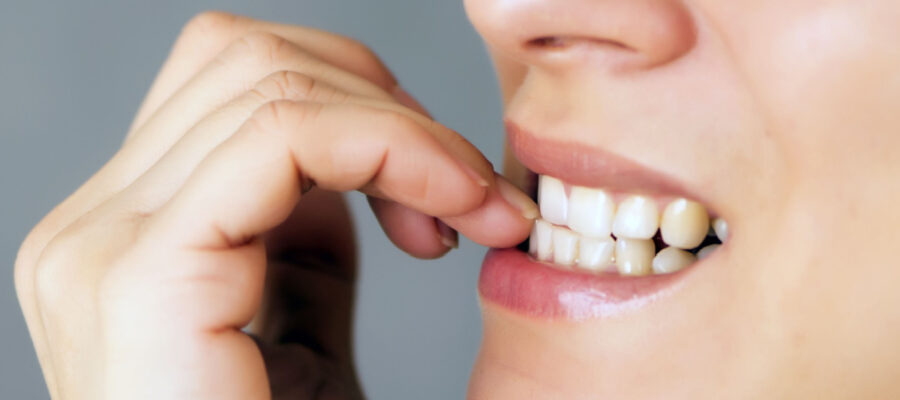
Suffering From TMJ? Break These Bad Habits

TMJ causes a number of issues at varying levels of severity, from headaches to debilitating jaw pain, making it challenging to chew or speak at times. Fortunately, there are things you can do to relieve symptoms of TMJ, including eliminating bad habits. In minor cases of TMJ, pain relief is achievable with certain nonsurgical methods. Dr. Ivan Stein and Dr. Allan Stein discuss several bad habits that can exacerbate TMJ pain and tips on how to stop them.
Clenching Your Jaw
A clenched jaw is often a physical expression of stress, and it can occur without you even knowing you are doing it. In fact, many people do not realize their jaws are clenched until after feeling a shooting and lasting pain in the jaw. This habit places an incredible amount of stress on the joint, which can make your TMJ symptoms even worse.
To reduce stress, consider incorporating meditation techniques into your day, focusing specifically on relaxing the face and jaw during your session. You can try meditating in the morning, evening, or anytime you feel stress beginning to creep up.
Poor Posture
Keeping your head and neck in a lax or uncomfortable position for long periods of time can lead to more pain in the jaw. To break this habit, practice good posture regularly until it starts to feel natural to you. Try to sit or stand as straight as possible and make use of special pillows and seat cushions for added comfort.
Sleeping Without Your Mouthguard
When you are already tired from the day, getting ready for bed can feel like a feat in itself. However, if you have TMJ, you know the importance of wearing your mouthguard to protect your jaw and improve your sleep. Regularly falling asleep without first inserting your protective oral appliance can mean waking up to a headache, achy jaw, and even stiffness in the neck.
Make it easy to remember your mouthguard before bedtime by setting it in a convenient location, such as a bedside table.
Using Your Teeth as a Tool
Nail biting, pen-chewing, or using your teeth to open food packages are bad habits outside of TMJ pain. But when it comes to reducing TMJ symptoms, the habit of using your teeth as a tool can increase the pain you feel in your jaw. Consider using deterrents, such as nail polish to prevent you from biting your nails or keeping a small pair of scissors handy for opening bags and packages.
Effective TMJ Treatment in New Jersey
Our doctors want you to experience a life free from the restraints of TMJ pain. Managing bad habits, utilizing customized oral appliances, and regularly attending visits with our TMJ experts can help improve your quality of life with the condition. To schedule your consultation, contact our New Jersey office.

